Newsroom
RIMS, AIRMIC, REPTRAK REPORT: Closing the Gap on Reputational Risk Management
Airmic, The Risk and Insurance Management Society (RIMS) and the RepTrak Company commissioned interviews with over 40 leading risk professionals in Europe and the US to discuss how reputational risk management can be improved.
September 22, 2020 - Traditionally, risk is dealt with by risk experts, while reputation tends to be managed by the corporate affairs or corporate communications teams. When those two teams work in silos risks to reputation can develop and remain undetected until it is too late, and an organization can find itself as unplanned headline news.
Airmic, The Risk and Insurance Management Society (RIMS) and the RepTrak Company commissioned interviews with over 40 leading risk professionals in Europe and the US to discuss how reputational risk management can be improved.
Furthermore, professors and industry thought leaders were brought together in working groups to discuss challenges and best practices. The resulting report, “Closing the Gaps on Reputational Risk Management”, provides guidance to help close the gaps on reputational risk management.
Six Challenges
Risk professionals face six challenges to understanding and addressing risks to reputation, according to the report:
- Unclear definition of reputation.
- Confusion on the categorization of risks to reputation.
- No commonly agreed upon, consistent measurement of the business impact from specific risks to reputation.
- No framework for linking the strategic, operational, and tactical aspects of reputational risk management.
- An absence of integrated ownership and accountability across organizations.
- Slow development of solutions for risk transfer including insurance.
At a Crossroads
The report’s release coincides with Airmic Fest, held September 22-24, 2020, marking Airmic’s first virtual conference and the first such event of its kind for risk management and insurance professionals in the UK. The theme of Airmic Fest is “Working together in a time of accelerated change” – echoing the message that collaboration is crucial to close the gaps on reputational risk management. The conversation will continue at the RIMS ERM Virtual Conference 2020, held November 4-5, 2020 with a discussion of the results.
The report states that risk professionals today are at a crossroads, where they can follow one of two paths: the first, where they have the responsibility but no influence and control; or the second, where they can contribute value to the organization by leading implementation of a structured, data-driven and systematic approach to reputational risk that draws the whole organization together around a common framework.
Julia Graham, Deputy CEO, Technical Director, Airmic, said: “We hope this guide to reputational risk will encourage and help more risk professionals to travel the second path. We are delighted to have worked with RIMS and The RepTrak Company on this paper, which puts forward a guide for risk professionals to work strategically with others within their organizations, to measure and tackle reputational risks today.”
Hoe-Yeong Loke, Research Manager, Airmic, added: “As organizations manage issues arising from the Covid-19 pandemic, they face increasingly interconnected and complex risks. Reputational risk takes on even greater importance. Previous studies from Airmic and RIMS suggest that the risk community continues to struggle with reputational risk, and with reputation as an intangible asset. There is a gap between what senior executives and risk professionals know is important to manage and the work that is being done.”
Carol Fox, VP Strategic Initiatives, RIMS, continued: “During our research journey with Airmic and RepTrak, we learned from our collective focus group participants that unlocking reputational value is as important as closing reputational gaps. Greater collaboration between risk and corporate communications professionals in using data to detect reputational risk early on helps unlock reputational value as well as produce an agile and decisive crisis management response.”
Kasper Ulf Nielsen, RepTrak Chief Strategy Officer, Co-founder, noted: “Most organisations deal with reputational risk at the operational level only. This is not out of choice, but because they lack the data and framework to bring the operational and the strategic together. Frameworks such as the RepTrak® reputational risk framework with its use of the seven drivers of reputation, provides a basis for measurement, monitoring and collaboration between different functions within an organization.”
About Airmic
The leading UK association for everyone who has a responsibility for risk management and insurance for their organisation, Airmic has over 450 corporate members and more than 1,300 individual members. Individual members include company secretaries, finance directors, internal auditors, as well as risk and insurance professionals from all sectors. Airmic supports members through training and research; sharing information; a diverse programme of events; encouraging good practice; and lobbying on subjects that directly affect our members. Above all, we provide a platform for professionals to stay in touch, to communicate with each other and to share ideas and information.
About The RepTrak Company
The RepTrak Company™ is the world leading reputation data and insights company. We provide the only global platform for data-driven insights on Reputation, Brand, and ESG. Our proprietary RepTrak® model is the global standard for measuring and analyzing the sentiment of the world using proven data science models and machine learning techniques across industries and geographies.

Leave a comment